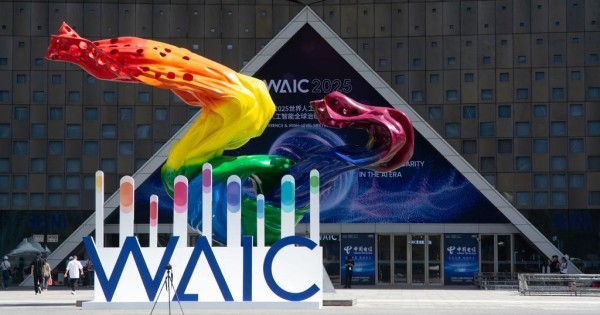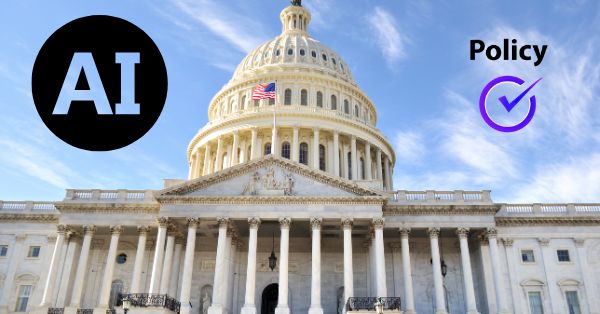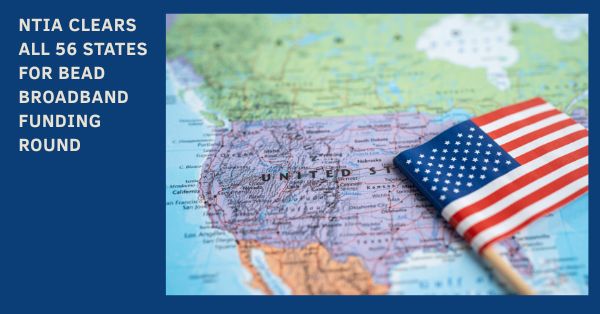China has proposed the creation of an international organization focused on AI governance and cooperation as it seeks to shape the future of artificial intelligence on a global scale. Premier Li Qiang unveiled the initiative at the World Artificial Intelligence Conference (WAIC) in Shanghai, signaling Beijing’s ambition to play a central role in setting international AI standards.
Call for a Unified Global AI Framework
Addressing over 1,200 representatives from 30 countries, including leading AI experts and industry leaders, Li emphasized the need for a coordinated approach to AI governance. He argued that current regulatory approaches are fragmented, with major differences between nations on policy, institutional frameworks, and ethical rules.
“We should enhance coordination and alignment to establish a widely accepted global governance framework for AI at an early date,” Li stated during the WAIC opening session.
The proposed organization would aim to create shared standards, promote responsible AI development, and ensure equitable access to AI technologies. Chinese officials indicated that the body’s headquarters could be located in Shanghai, positioning the city as a hub for international AI collaboration.
Balancing Innovation and Security
Li expressed concerns about the rapid pace of AI innovation and the associated security and ethical risks. He highlighted challenges such as deepfakes, machine hallucination, AI-driven misinformation, and job displacement as critical issues requiring global consensus.
“The goal is to ensure that AI becomes a major opportunity to improve our world, not a threat to humanity,” Li said. He underscored the need to balance technological progress with safeguards, calling for a collective effort to manage AI risks.
China’s Offer to Share AI Advances
China signaled a willingness to share its AI advancements, especially with developing nations. Li stressed that openness and equitable access are essential to avoid AI becoming an “exclusive game” controlled by a few countries or corporations.
Beijing’s 13-point action plan, unveiled alongside the proposal, includes initiatives to build cooperative AI research labs, develop high-quality training datasets, and launch AI education and talent development programs. Special emphasis is placed on supporting the Global South in building AI capacity and governance frameworks.
Contrasting US and Chinese AI Strategies
The proposal comes just days after the US announced its own AI strategy under President Donald Trump, focusing on deregulation and accelerating domestic AI development. The White House plan calls for maximizing AI exports to allied nations while restricting access to adversaries, reflecting Washington’s aim to maintain leadership in the ongoing AI race with China.
Li’s call for inclusive AI governance and cooperation contrasts sharply with the US approach. Without directly referencing Washington, he warned that bottlenecks such as limited access to AI chips, barriers to talent exchange, and concentration of AI resources risk making the technology accessible to only a select few players.
Shanghai as a Potential Global AI Hub
Vice Foreign Minister Ma Zhaoxu revealed that China is considering placing the new organization’s headquarters in Shanghai. The move would align with Beijing’s broader strategy to establish the city as a global innovation center and strengthen its role in shaping AI policy.
Representatives from countries including Russia, South Korea, Germany, Qatar, and South Africa attended the WAIC roundtable discussions, reflecting Beijing’s effort to build a coalition of nations supportive of a more inclusive AI governance model.
AI as a Defining Geopolitical Battleground
The proposal underscores the growing geopolitical significance of artificial intelligence. Both the US and China view AI leadership as a critical factor in economic, military, and technological dominance throughout the 21st century. Trump recently described the US-China AI rivalry as “the race that will define the century,” while Beijing continues to advocate for multilateral approaches to AI governance.
Open-Source AI and Global Cooperation
China also highlighted the role of open-source AI in democratizing technology. Li pledged that Beijing would actively promote open-source AI models and algorithms to foster collaborative development and avoid over-concentration of control. This approach is designed to appeal to emerging economies seeking affordable access to advanced AI technologies.
Next Steps for Global AI Governance
If realized, the proposed organization could serve as a platform to align international AI standards, facilitate talent exchange, and address challenges such as compute shortages and ethical concerns. For China, it is also a strategic step to expand its influence in global technology governance while countering US-led initiatives.
By positioning itself as a champion of inclusive AI development, China is signaling that it wants to shape not only the technology itself but also the rules and norms governing its use. Whether this vision will gain widespread international support remains to be seen, but the proposal marks a significant moment in the evolving landscape of global AI policy.
































